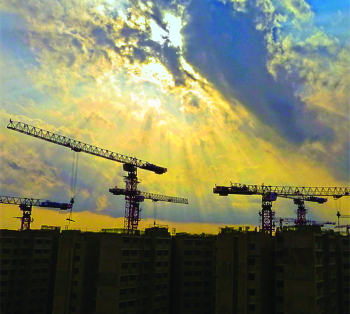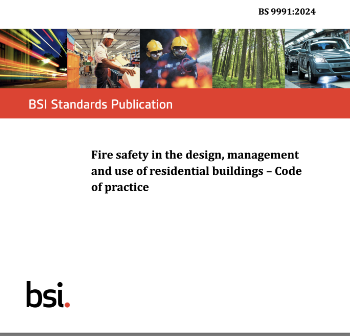Domestic Retrofit training course

|
| BRE Academy's modular Domestic Retrofit training course aims to raise awareness of key technical refurbishment topics – moisture awareness, airtightness, exposure, external wall insulation, building physics and unintended consequences. |
Contents |
[edit] Description
Improving the energy performance of existing housing is seen as a key contributor to meeting the UK’s climate change commitments, but refurbishing housing can also improve householders’ thermal comfort, save money and increase security of supply. There has been concern, however, that the standard of design and installation of these energy-saving features has often been inadequate. This was a driver behind the Each Home Counts (EHC) Review, which recommends a quality mark and supporting technical codes of practice and standards to cover the design and installation of energy efficiency measures. Key to this is the up-skilling and training of those delivering these measures.
The Domestic Retrofit Training Course consists of six 20-30-minute modules to raise awareness of key technical refurbishment topics – moisture awareness, airtightness, exposure, external wall insulation, building physics and unintended consequences. The course is consistent with the EHC review recommendations and the proposed technical direction of PAS 2035 Code of practice for the energy retrofit of buildings (and associated standards), which is now being developed. As well as introducing the key technical issues involved, it provides a first step to further training to become accredited under PAS 2035, which will enable practitioners to display the EHC Quality Mark.
There is an introductory module but the other modules can be taken in any order as there are cross linkages between them as well as extensive reference to supporting BRE guidance which provides further technical details. The learning outcomes are set out at the start of each module.
[edit] Intended audience
The course is designed primarily for surveyors and designers, but is also relevant to domestic refurbishment project clients, materials providers, installers, site managers and assessors.
Users of the modules are invited to provide feedback on the content and the method of delivery so that they can be improved and developed further.
For further information, click HERE.
[edit] About this article
This article was provided by the BRE Academy and previously appeared on its website in December 2019. It can be accessed HERE.
Other articles by BRE on Designing Buildings Wiki can be accessed HERE.
[edit] Related articles on Designing Buildings Wiki
Featured articles and news
CLC and BSR process map for HRB approvals
One of the initial outputs of their weekly BSR meetings.
Building Safety Levy technical consultation response
Details of the planned levy now due in 2026.
Great British Energy install solar on school and NHS sites
200 schools and 200 NHS sites to get solar systems, as first project of the newly formed government initiative.
600 million for 60,000 more skilled construction workers
Announced by Treasury ahead of the Spring Statement.
The restoration of the novelist’s birthplace in Eastwood.
Life Critical Fire Safety External Wall System LCFS EWS
Breaking down what is meant by this now often used term.
PAC report on the Remediation of Dangerous Cladding
Recommendations on workforce, transparency, support, insurance, funding, fraud and mismanagement.
New towns, expanded settlements and housing delivery
Modular inquiry asks if new towns and expanded settlements are an effective means of delivering housing.
Building Engineering Business Survey Q1 2025
Survey shows growth remains flat as skill shortages and volatile pricing persist.
Construction contract awards remain buoyant
Infrastructure up but residential struggles.
Home builders call for suspension of Building Safety Levy
HBF with over 100 home builders write to the Chancellor.
CIOB Apprentice of the Year 2024/2025
CIOB names James Monk a quantity surveyor from Cambridge as the winner.
Warm Homes Plan and existing energy bill support policies
Breaking down what existing policies are and what they do.
Treasury responds to sector submission on Warm Homes
Trade associations call on Government to make good on manifesto pledge for the upgrading of 5 million homes.
A tour through Robotic Installation Systems for Elevators, Innovation Labs, MetaCore and PORT tech.
A dynamic brand built for impact stitched into BSRIA’s building fabric.
BS 9991:2024 and the recently published CLC advisory note
Fire safety in the design, management and use of residential buildings. Code of practice.
























